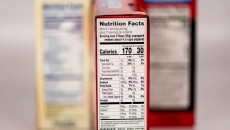Relaxation drinks are ‘looking for trouble’, says food and drug attorney
The Food and Drug Administration (FDA) released its draft guidance for industry on factors that distinguish liquid dietary supplements from beverages in December 2009, and said it issued the draft guidance because of the rise of beverages being marketed as dietary supplements with unauthorized novel and high-dose ingredients and the labeling implications that follow from that.
Marc Ullman, partner at food and drug law firm Ullman, Shapiro & Ullman, told FoodNavigator-USA.com that the relaxation beverage category may face particular problems as drinks makers look to include ingredients intended to promote relaxation or alertness in their products.
Such ingredients might include amino acids, vitamins, and minerals such as potassium, which is associated with muscle relaxation.
At next month’s Nutracon in Anaheim Ullman will present on the topic, “Product Development: FDA and the Food-Supplement Distinction: What Does it Mean For the Functional Foods and Beverage Industry”.
The problem is with “the fundamental categorization of a product,” he said. “You can’t have a coffee dietary supplement. It’s coffee.”
He explained that the issue is that food and beverage companies promoting such products often make claims regarding ingredients that have not gone through the GRAS (generally recognized as safe) process required for food ingredients. Although this may occur in many sectors of the food and beverage industry, Ullman said he intends to spend some time focusing on the emerging relaxation beverage category in particular during his Nutracon presentation.
“The relaxation product category is a category that’s looking for trouble,” he said.
The idea of relaxation or alertness drinks first emerged in Japan in 2005 when a group of products came onto the market enriched with (GABA) gamma amino butyric acid.
Formulated to help people unwind or focus better, these new drinks quickly spread to the US and have found a niche alongside energy drinks.
And the global market for relaxation beverages is booming. Recent research from Zenith International estimates that sales volumes have trebled since 2007 to 133 million liters in 2010 and the retail value of the market has risen to $521m.
Ullman said that following a flurry of FDA activity to crack down on foods and beverages that it deemed misbranded last year, there has since been a slowdown. However, he envisages ingredient issues to come to the fore again, particularly with Daniel Fabricant, formerly of the National Products Association, taking the helm as the FDA’s director of its Division of Dietary Supplement Programs.
“I would guess you are going to see more emphasis on ingredients and a de-emphasis on the shape of the container,” Ullman said.
Marc Ullman’s presentation forms part of Nutracon’s Food-Supplement Convergence track. Nutracon takes place from March 9-10, 2011. For more information and to register: www.nutraconference.com.














